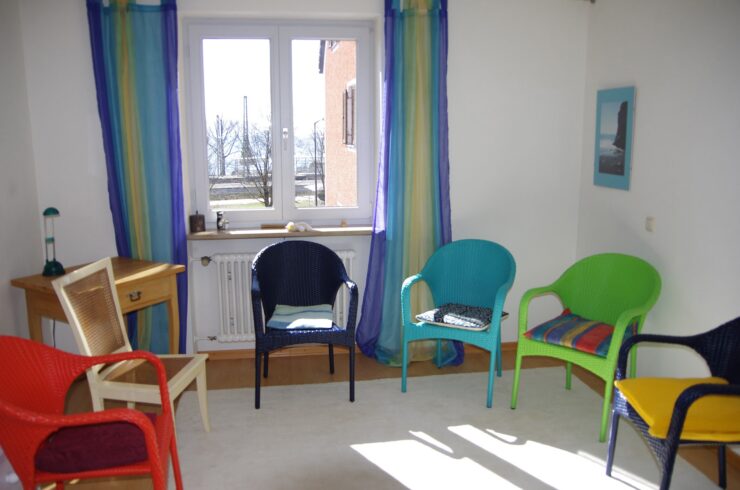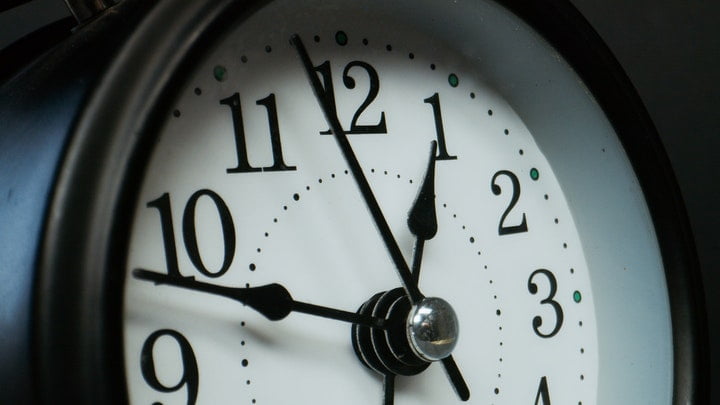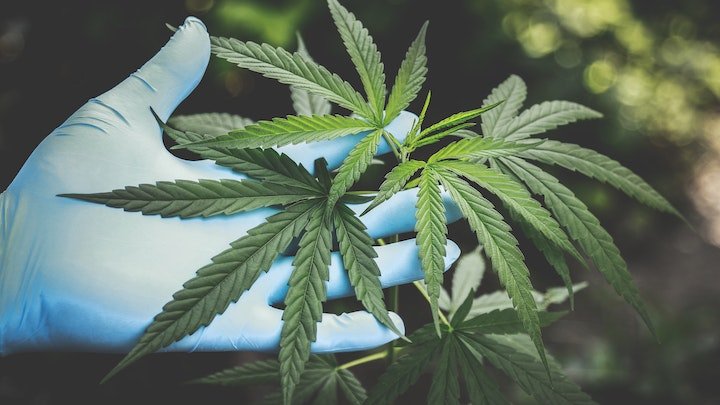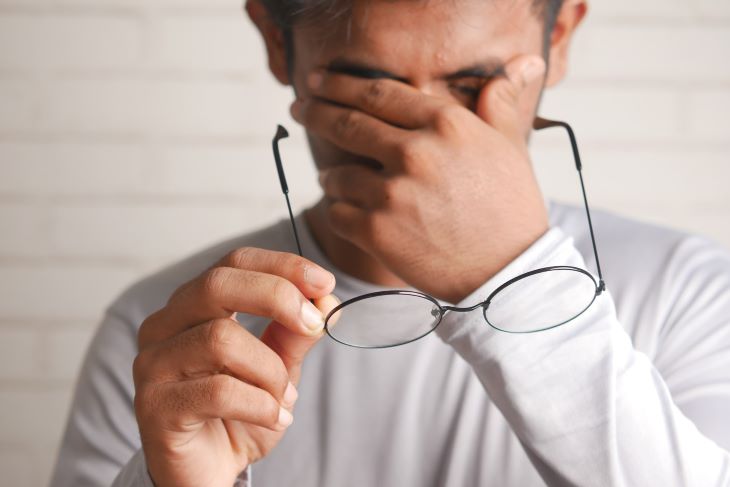Drug & Alcohol Rehab in Wiltshire
The number of hospital admissions directly related to alcohol in Wiltshire in 2018-19 was a staggering 3,078.
As well as high cases of alcohol abuse, local police recently made 27 arrests and seized over £630,000 worth of drugs from a local drug gang.
While getting these drugs off the street is an important step in the fight against drugs, there is a clear demand for drug and alcohol addiction treatment services in Wiltshire.
Get alcohol and drug rehab in Wiltshire for a large number of addictions including binge drinking, alcohol addiction, benzodiazepine addiction, Buprenorphine addiction, cannabis use disorder, crack cocaine addiction, ketamine addiction, opioid use disorder, heroin addiction, cocaine dependence or cocaine addiction, any physical dependence or codependency, substance use disorder, and behavioural addictions such as gambling addiction and eating disorders.
Start your journey towards recovery at a rehab centre in Wiltshire by calling our team today on 0800 326 5559
How much does it cost to attend drug and alcohol rehab in Wiltshire?

The cost of drug and alcohol rehab in Wiltshire varies and depends on a range of factors such as the type of facility you choose and how long you need to spend there.
Some facilities offering drug and alcohol rehab in Wiltshire are high-class facilities and offer extra luxuries such as spa services, massages and gourmet meals.
If you decide to attend one of these facilities, you can expect to spend up to £70,000 for a 30 day stay.
Wiltshire also offers some more basic facilities that allow you to reduce costs even further by sharing a room with other service users.
A basic facility will not offer spa treatments or gourmet meals; however, you will still be looked after and have as much chance of overcoming your addiction as those in high-end facilities.
The cost of the more basic facilities varies from each place and each person’s individual need.
You can expect to spend anywhere between £1,000 and £10,000 per week in drug and alcohol rehab in Wiltshire.
For a better idea of how much you can expect to spend attending a rehab facility, contact a member of our team today on 0800 326 5559
Pre-rehab steps: Intervention

An intervention happens when enough people in your life are worried enough about you to get together to confront you with their concerns about your addiction.
Traditional interventions are usually done with the best intentions; however, they are not always received warmly by the individual struggling.
Quite often, the person for whom the intervention was staged feels overwhelmed by the confrontational approach of a traditional intervention and this can lead to them distancing themselves from their loved ones and taking greater measures to hide their addiction from those around them.
An alternative approach to intervention, and something that is becoming increasingly popular in Wiltshire and surrounding areas, does not require a confrontation and is a much gentler approach.
It is called the CRAFT approach to intervention.
CRAFT stands for Community Relations And Family Training. It uses the services of a professional interventionist to train the family how to handle their loved one’s addiction in such a way that they will eventually realise for themselves that they need to seek professional help.
This is achieved using a subtle approach in which the person with the addiction will be held accountable for their actions and forced to deal with the consequences of their actions alone.
For example, the professional interventionist will tell the family to stop giving the person money if they have spent their own money on fuelling their addiction.
Eventually, the family will be able to approach the person about the possibility of attending drug and alcohol rehab in Wiltshire.
To learn more about how to effectively hold an intervention in Wiltshire, talk to our experts today 0n 0800 326 5559
How do I know if I am addicted?

Addiction doesn’t happen overnight, and you can develop a dependency before you’ve noticed that your recreational habit has gotten out of hand.
There are a few signs of addiction, however, these will differ between each person. Some of the most common signs of an addiction are:
- Being dishonest about your whereabouts and the people you are spending time with
- Taking more of the substance than originally intended
- Lying to yourself and others about your substance misuse
- Frequently telling yourself that you will quit only to keep on using the substance
- Money problems or legal issues as a result of your substance use
- Problems at work or school because of your substance use
- Using the substance when it is dangerous, for example, when driving
- Sleep issues
- Increased feelings of anxiety or depression
If you are struggling with an alcohol use disorder, your GP or another healthcare professional will use a specific questionnaire to help to determine whether or not you have developed a dependency.
This is called the CAGE questionnaire.
CAGE is an acronym for Cut, Annoyed, Guilty and Eye-opener and it helps to remember the 4 questions of the questionnaire, which are:
- Have you ever felt you should cut down on your drinking?
- Have people annoyed you by criticizing your drinking?
- Have you ever felt bad or guilty about your drinking?
- Have you ever had a drink first thing in the morning to steady your nerves or get rid of a hangover (eye-opener)?
Every ‘yes’ answer gets a score of 1, while a ‘no’ answers gives a 0. A final score of 2 or higher means that it is likely that you have developed an addiction and need to seek professional help.
For more information on the CAGE questionnaire or to talk to someone about drug and alcohol rehab in Wiltshire, contact one of our addiction specialists today on 0800 326 5559
Can I use health insurance to cover drug and alcohol rehab in Wiltshire?

Most facilities offering drug and alcohol rehab in Wiltshire will accept health insurance as part-payment to help you cover the cost.
However, there are some caveats to using private health insurance to cover the cost of a private rehab.
For example, if your health insurance is through your employer, you will have to let your employer know that you are claiming through your insurance and tell them the reason why.
This will undoubtedly be a difficult conversation for you to have.
Similarly, if your health insurance is attached to your mortgage, you will have to make your lender aware of the insurance claim and the reason for it. This could lead to an increase in your premiums.
It is worth thoroughly checking your documentation or contacting the customer services department of your insurance provider to find out everything you need to know about your policy and using it to cover private drug and alcohol rehab in Wiltshire.
To learn more about how to use health insurance to access addiction treatment services in Wiltshire, call us today on 0800 326 5559
Can I get drug and alcohol rehab in Wiltshire through the NHS?

Drug and alcohol rehab is available through the NHS, however, the level of care received through NHS addiction treatment is usually lower than that received through private treatment.
The NHS is severely underfunded, which means they do not have the same resources that a private facility can offer.
And, while it is not impossible to attend residential drug and alcohol rehab in Wiltshire through the NHS, it is incredibly difficult and an extremely rare occurrence.
To even be considered for this, you have to prove that you have exhausted every other treatment and still need help.
As well as this, you will have to have an addiction specialist that has been working with you make your case on your behalf.
Your case is then presented to a board who will ultimately make the decision; however, the decision usually comes down to funding and it is uncommon to use a large chunk of funding on one person’s residential rehab treatment.
NHS addiction treatments are most commonly done in the form of outpatient appointments with addiction specialists, and while these appointments are helpful, they rarely provide the level of care required to fully overcome an addiction.
Statutory-Funded Addiction Programmes in Wiltshire:
Here are few options that can help with addiction support.
1. Turning Point
Address: Bythesea Rd, Trowbridge BA14 8JQ
Telephone: 01225341520
Website: https://www.turning-point.co.uk/services/impact
2. REACH Drug & Alcohol Services
Address: Woodcock Court, Queen St, Gillingham SP8 4DZ
Telephone: 08000434656
Website: http://www.edp.org.uk/reach/
3. Drug and Alcohol Recovery Service
Telephone: 01380 814250
Website: https://www.changegrowlive.org/drug-alcohol-recovery-hmp-erlestoke
You can also reach out to a number of helplines, including Mind UK, YoungMinds, Rethink Mental Illness, Samaritans, Papyrus and SMART Recovery.
Additionally, find an Alcoholics Anonymous, Narcotics Anonymous or Cocaine Anonymous near you. The NHS are also there to help you on your journey to recovery.
Other organisations that can offer you advice on your addiction for free include NHS Foundation Trust, Turning Point, We Are With You, National Association for Children of Alcoholics, Change Grow Live, Al-Anon and Alateen.
Organisations are mainly advised by the American Society of Addiction Medicine and the National Institute for Health and Care Excellence so you are in safe hands with person-centered care.
Your private rehab might also offer sober living houses as part of your aftercare once you leave rehab to help you maintain your sobriety and help with relapse prevention.
Make sure that you get the help you need from a drug and alcohol rehab in Wiltshire – call us today on 0800 326 5559
How long does alcohol and drug rehab last?

Unfortunately, this is not a question that can be answered easily. This is because rehab lasts as long as it needs to last for each individual person.
If you are addicted to alcohol or opiates like heroin, you will have to go through a medically assisted alcohol or drug detox when you first attend rehab. This is to rid your body of the harmful substance in the safest way possible.
The medical detox usually lasts between 7 and 10 days, and you cannot begin your therapy treatments until this stage of the rehabilitation is complete.
If you are addicted to cocaine or cannabis, a medical detox will not be necessary and your time in rehab is usually shorter.
However, for most addictions – whether they cause a physical addiction or not – it is recommended to spend around 30 days or 4 weeks in drug and alcohol rehab in Wiltshire to fully give yourself time to heal.
Stages of an alcohol detox
Alcohol dependence can be assessed using the Alcohol Use Disorders Identification Test, DSM-5 or CAGE questionnaire.
If you are a dependent drinker, you will have built up a strong tolerance to alcohol, and experience unpleasant withdrawal symptoms (alcohol withdrawal symptoms) or alcohol withdrawal syndrome after you stop drinking.
To ensure that the risk of seizures is minimised, our medical team prescribe you with Chlordiazepoxide, brand name Librium, as you undergo detox as this has been proven to offer good protection against the risk of seizures.
A medically-assisted detox (alcohol detox) is needed in order to try to prevent the effects of alcohol, including encephalopathy (Wernicke encephalopathy) and delirium tremens.
To learn more about how long your stay at a rehab centre in Wiltshire is likely to last, call us today on 0800 326 5559
Can I recover at home?

Whilst there are a lucky few who will be able to recover fully from a drug or alcohol addiction from home, this is not a viable or advised option for everyone.
Attempting to recover from home, especially when you are alone, is risky and dangerous, and can sometimes even lead to death if detoxes are carried out improperly or medication is taken without the knowledge of a medical professional.
Whether or not an at-home recovery would work for you relies on many different aspects of you and your addiction, such as:
- The substance or multiple substances you have used.
- The length of time you have been using them for.
- The severity of your addiction and certain personality traits (whether you are independent, self-motivating, strong-willed or not).
Some of these factors are of course out of your control when searching through your treatment options, so don’t be disheartened if an at-home recovery is not recommended to you – it is rare that this is ever recommended.
If you did decide to attempt to withdraw from drugs or alcohol alone at home, you may face a fair few obstacles on your way to recovery.
First of all, if you remain in your home environment when trying to abstain, you may find that temptations are all around you.
In most cases, the root causes and triggers of addiction lie within the home and can be anything from abusive relationships and dysfunctional families to traumatic events or peer pressure from friends.
If you are not detached from these things when attempting to stay away from substances, you are more likely to give in to temptation when exposed to the triggers once more.
Secondly, once you are exposed to these triggers and find yourself reaching for drink or drugs to cope with or forget about them, it is much easier to access substances if you are at home.
With today’s technology, you can get alcohol delivered right to your door without having to lift more than your index finger, which can be highly dangerous for those trying to recover and avoid drinking.
Because of these and a multitude of other reasons, at-home treatment options are rarely advised to our clients. Not only do they offer a much lower chance of a successful and long-lasting recovery, but they can sometimes even be fatal.
To learn if home detox is the right treatment option for you, call us today on 0800 326 5559
What other options for treatment do I have?

So this leaves the question: What other options are available to you?
The other two main options for alcohol and drug addiction treatment are outpatient and inpatient (residential).
Outpatient treatment combines aspects of both at-home and residential treatments, with a detox performed at home but other treatments taking place at the clinic during daily or weekly visits.
Whilst this option does allow for more personal independence and is less of a time commitment, it still has many of the drawbacks that an at-home recovery does.
This option is usually only recommended for those that are dealing with less severe addictions, those that don’t require much medical intervention or those that are deemed able to look after themselves outside of rehab.
Residential rehab is the option that boasts the highest chance for a full recovery, and one that is more likely to be long-lasting.
On a residential programme in a drug and alcohol rehab, you are fully detached from possible triggers within your home environment, meaning you can recover in peace away from events, people or emotions that may have caused your addiction in the first place.
Though leaving your home and moving somewhere new for a month or even longer may sound scary to some, if you choose a local rehab centre in Wiltshire you can still achieve this whilst remaining somewhere you are familiar with.
Another benefit to residential rehab is the constant care and attention you receive throughout your stay. An excellent team of highly trained medical staff and therapists will be on hand to welcome you, show you around your new home, and be there for you every step of the way.
They have seen it all before and are there to help, not judge. They will monitor your progress during your stay and will be there at all times for anything you may need, which is something you do not have access to with other treatment options.
One of the worries of an at-home recovery is the ease at which you can access further drugs or alcohol. In rehab, this is impossible as you are completely removed from your usual life and home, and will not have the chance to give in to temptations.
All your treatment takes place under one roof, and this treatment not only attacks the physical symptoms of alcohol or drug addiction but the psychological ones too.
For guidance in choosing between inpatient and outpatient addiction treatment, call our team today on 0800 326 5559
Treating the mind and the body

One of the main drawbacks to at-home recoveries is the absence of treatment for your mind.
Though you may succeed in detoxing yourself from drugs or alcohol and your body may be rid of the substance physically, the triggers and emotions that led you to drink or drugs initially will still remain, meaning you are much more likely to reach for them once more even after detox.
At rehab, this is remedied with a combination of physical and psychological treatments.
You will undergo a full drug and alcohol detox for your body and experience withdrawal symptoms, but will also take part in several therapies and addiction counselling treatments that aim to heal the mental aspects of addiction too.
This is the fundamental process that makes rehab so beneficial; the body and mind are treated separately so that they can heal and work together once more.
Discover what treatments will be best for your needs by calling our team today on 0800 326 5559
Alcohol detox and alcohol rehab in Wiltshire

When you attend rehab in Wiltshire to get help with alcohol addiction, you will first need to undergo a medically assisted alcohol detox. This is because alcohol causes a physical addiction, which also means that alcohol withdrawal symptoms can be particularly dangerous.
Common alcohol withdrawal symptoms include:
- Nausea and vomiting
- Diarrhoea
- Headaches
- Fatigue
- Abdominal cramps
- Uncontrollable shaking
- Insomnia
- Cold sweats
- Hallucinations
- Seizures
- Delirium tremens
You will be given a prescription drug such as Librium to combat these symptoms, and will typically spend the first 7 to 10 days resting and being cared for by medical staff until you have overcome the worst of these symptoms.
Once this stage is complete, you will then move on to the therapy stage of rehabilitation and spend around 3 weeks attending intensive therapy sessions.
Types of therapy available at a private rehab in Wiltshire include Acceptance and Commitment Therapy, acupuncture, art therapy, cognitive behavioural therapy, dialectical behaviour therapy, drama therapy, Eye Movement Desensitization and Reprocessing, group psychotherapy, motivational therapy, Rational Emotive Behavior Therapy, brief intervention, contingency management, coping mechanisms work therapy, equine therapy, family therapy, group therapy, individual therapy, mindfulness, motivational interviewing, music therapy, and talking therapies.
The type of therapy you will require will depend on your personal circumstances, but you will be made of aware of what to expect when you first check-in.
Part of the therapy will be learning relapse prevention techniques and trigger identification. This is an important part of the rehabilitation process as it arms you with the tools you need to remain clean and sober long after you have checked out of rehab.
Beat alcohol addiction once and for all at a rehab in Wiltshire – call us today on 0800 326 5559
Cocaine rehab in Wiltshire

Cocaine is a white powder that is commonly snorted through the nose. It causes short bursts of extreme focus and energy in its users.
The high usually lasts for around 15 minutes, meaning people using cocaine often take more hits of the drug in one session to keep feeling the effects.
The more often the user takes cocaine or crack cocaine, the higher the dosage will need to be each time to feel the high.
The short-lived high and repeated use is what causes cocaine to be so addictive.
While cocaine is incredibly dangerous and highly addictive, it does not cause a physical addiction. This means that you will not need to undergo a medically assisted cocaine detox to overcome a cocaine addiction, but will instead engage in extensive therapies.
Overcome cocaine addiction with the help of a drug rehab clinic in Wiltshire by reaching out to us on 0800 326 5559
Heroin rehab in Wiltshire

Heroin is one of the most dangerous drugs available. It is also highly addictive.
Most people inject it directly into their veins and a common sign of a heroin user is track marks on their skin from where they have injected it.
Repeated heroin use can cause collapsed veins and greatly heightens the risk of diseases such as HIV/AIDS.
Not only is it highly dangerous and addictive, but it also causes physical addiction. This means that withdrawing from heroin (heroin withdrawal) causes physical symptoms such as:
- Vomiting
- Diarrhoea
- Nausea
- Abdominal cramps
- Muscle spasms
- Joint pain
To overcome a heroin addiction, you will have to undergo a medically assisted heroin detox when you first attend drug and alcohol rehab in Wiltshire.
You will given access to prescription drugs such as methadone to reduce the severity of the withdrawal symptoms and medical professionals will closely observe you.
This stage usually lasts between 7 and 10 days.
After this, you will need to spend around 3 weeks attending therapy to uncover the root cause of the addiction.
You might also receive support for any other effects of a heroin addiction, such as hepatitis.
Overcome heroin addiction with the help of a drug rehab clinic in Wiltshire by reaching out to us on 0800 326 5559
Cannabis rehab in Wiltshire

Cannabis is thought to be one of the most widely used drugs in the UK with many people believing it to be a gateway drug to harder and more dangerous drug use.
It is commonly rolled with tobacco and smoked and is said to make it’s users feel relaxed and happy. However, it is also known to cause paranoia and anxiety.
Long-term use of cannabis can lead to mental health conditions such as depression, post traumatic stress disorder (PTSD), bipolar disorder, borderline personality disorder, obsessive compulsive disorder (OCD) or schizophrenia or anxiety, that need professional treatment, as well as throat and lung conditions.
When you attend drug and alcohol rehab in Wiltshire to overcome a cannabis addiction, you can expect to spend between 10 and 14 days going through intensive therapy sessions to help you overcome your addiction.
Because cannabis does not cause a physical addiction, there is no need to go through a cannabis detox.
Overcome cannabis addiction with the help of a drug rehab clinic in Wiltshire by reaching out to us on 0800 326 5559
What if I have other mental health conditions?

Addiction often runs parallel to other mental health conditions, and it is common for other mental health issues such as anxiety, depression or bipolar disorder to exacerbate an addiction.
When you check in to drug and alcohol rehab in Wiltshire, you will be given a full psychiatric assessment by a psychiatrist to determine whether you have any other mental health conditions and need any psychiatric treatment.
If other mental health issues are discovered, these will be treated alongside your addiction. This is called a dual diagnosis.
Treating other underlying mental health conditions as well as the addiction is an important part of the rehabilitation process because it massively reduces the chances of relapse.
To discover how a drug and alcohol rehab in Wiltshire will help support your mental health, call us today on 0800 326 5559
Treatments to expect

Due to the bespoke nature of each client’s treatment plan, we do not know at this time exactly what your time in rehab will look like.
What treatments you undergo and participate in will be decided by a number of assessments that we perform early on in the admissions process, which help determine what your specific needs are and how we should meet them.
However, some treatments you may encounter include:
1. Family therapy
Addiction doesn’t always just affect the individual experiencing it, it can also deeply affect their loved ones, especially close family.
Family therapy is a method of treatment that brings families together in a safe space so that they can discuss not only how the addiction has impacted them personally, but how they can work together to help the recovering individual.
This therapy is a great way to let your loved ones know they are not alone, and that they have a system of supportive relatives on hand to help.
2. Group therapy
This therapy is one that brings together people from all different backgrounds that share one common goal; recovery.
Group therapy consists of a group of people who are experiencing similar situations being open about their addiction and what has led them to rehab. By sharing these details about themselves and hearing them from others, clients can feel like part of a network or collective, and they can better understand their own addiction by understanding others.
3. Individual therapy
Usually coupled with group therapy, individual therapy is ‘what it says on the tin’; therapy in a one-on-one setting.
This therapy can help clients become more aware of the root causes of their addiction, help them come to terms with the illness, develop new coping strategies, and learn how to avoid triggers in the future, all with the help and guidance of a professional.
This is by no means an exhaustive list of therapies available during rehab, merely the most common.
There are many other forms of treatment such as acceptance and commitment therapy, Cognitive Behavioural Therapy, Dialectical Behavioural Therapy, holistic therapies such as art therapy, music therapy and equine therapy, alongside contingency management, motivational interviewing and motivational enhancement therapy.
All of these can be used in conjunction with each other to further recovery.
To know more about any of these treatments, or to enquire about which methods you are likely to encounter, contact us on 0800 326 5559
What aftercare services can I expect from drug and alcohol rehab in Wiltshire?

An aftercare package is offered as part of your treatment plan at most facilities offering drug and alcohol rehab in Wiltshire.
Each facility will have its own aftercare plan and they are likely to differ between clinics. When you are researching clinics to try to find one that best suits your needs, it is important to ask about their aftercare package so you know what help will be available to you when you finish your residential treatment.
However, most clinics offer a range of common treatments including:
- Information about local Narcotics Anonymous and narcotics anonymous group meetings
- Information about local SMART recovery group meetings – SMART stands for Self-Management and Recovery Training – these meetings are slightly different to the traditional 12-step approach and non-religious or spiritual people may prefer this method, and give themselves over to a higher power.
- A home detox kit if necessary.
- Information about local family group meetings – this is especially important if you attended family therapy as part of your treatment and wish to continue this with your family after your time in rehab is complete.
- Information about your local drug and alcohol outreach team. In Wiltshire, this is Turning Point – https://www.turning-point.co.uk/services/impact
As well as this, many facilities have open days for former service users to come back to the facility for treatments and catch-ups with the staff.
To learn more about alcohol and drug rehab centres in Wiltshire, give our team a call today on 0800 326 5559
Getting Help Today
If you are worried about your substance use or that of someone you love, it is better to get help sooner rather than later.
Call a member of our team today on 0800 326 5559 for advice on the next steps you can take to beat addiction for good.
When you make the choice to reach out and get help for your addiction in Warwick, you’re choosing to pursue a happier, healthier and longer life.
All of our rehabs are assured by the Care Quality Commission (CQC).
We offer access to many rehab clinics in and near to Wiltshire, including in Bristol, Bath, Swindon, Southampton, Basingstoke, Reading, Oxford, Cheltenham, Gloucester and many others across the UK.





